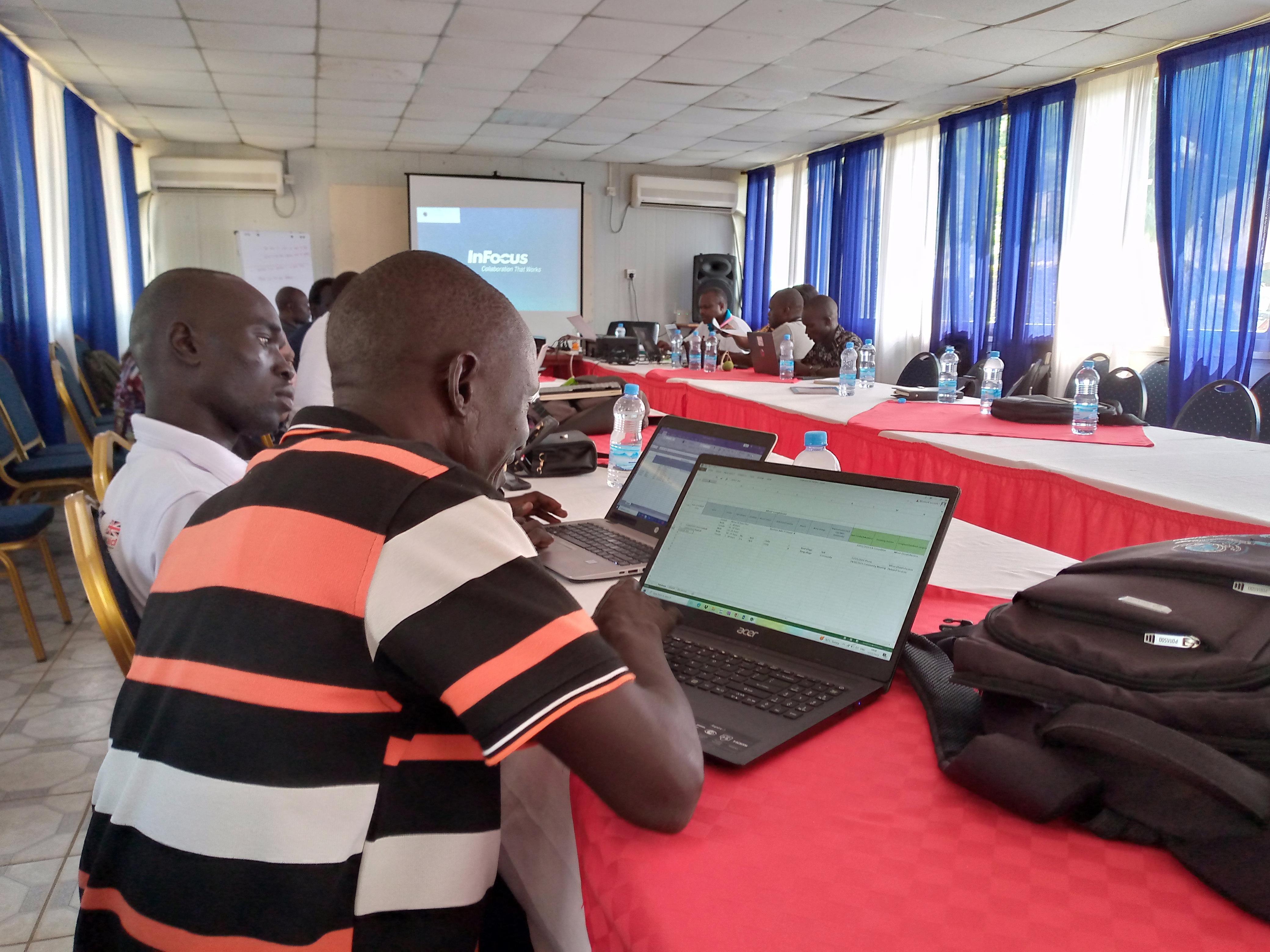As parts of its mandate, South Sudan Widows and Charitable Organization SSWOCO organized a training on data collection, entry and analysis aims at strengthening the capacity of Accountability to Affected Population AAP officers in all SSJR project locations in South Sudan.
The five days training drew together eight AAP officers from six SSJR project locations of Malakal, Melut, Pibor, Tonj East, Wau and Koch.
The training focused on ensuring that, project participants are adequately involved in project implementation processes through various means of feedback mechanisms and community engagements and getting their feedback converted into a tangible data that can be used to improve response initiative.
Accountability to Affected Populations (AAP) is an active commitment by humanitarian actors to use power responsibly by taking account of, giving account to, and being held to account by the people they seek to assist.
In the context of South Sudan, accountability to affected populations (AAP) remains of paramount importance to the overall humanitarian response, propelled by the twin operational responsibilities to promote a rights-based approach and to improve aid effectiveness across humanitarian programming.
Accountability to Affected Populations (AAP) has been recognized as a strategic priority in South Sudan to ensure an accountable and rights-based approach to response planning and to enhance the effectiveness and efficiency of aid.
The training was made possible with funding from Dutch Relief Alliance administered by Save the Children International.
South Sudan Joint Response SSJR lead Coordinator Kayi Joseph, presented a succinct and clear AAP data collection, entry and analysis tool and system to the SSJR partners’ AAP officers. He urged the participants to use the technical skills they acquired during the training to improve their work in humanitarian response.
In his remark to the participants, he advised the National Non-Governmental organizations to increase the required reporting thresholds for AAP to meet the donor need. He stressed that, most NNGOs do not gather enough feedbacks from the affected population compared to their International NGO counterparts. He however threatens that, if NNGOs continue to fall below standards, donors will be compelled to assign AAP responsibility to international organizations.
